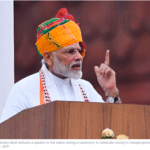Lately, many parents have been utilizing a new approach to monitor their children by utilizing AirTags, a $29 device sold by Apple that allows real-time tracking of kids’ locations. While it may seem unsettling at first, the practice when employed with the children’s consent, could prove beneficial in safeguarding them from potentially dangerous aspects of technology and promoting their independence. In a world where digital natives are spending less time outside and more time alone, this technology can strike a balance between ensuring safety and granting youngsters the freedom they need for a happy childhood and developing essential life skills.
Studies show that today’s “digital natives” are less likely than previous generations to venture out without parental supervision. Their engagement in face-to-face interactions has reduced, leading to lower socialization time and decreased opportunities to build vital social skills. The prevailing trend of spending more time alone, often on social media, has raised concerns about the psychological well-being of young individuals. They can easily be exposed to harmful content promoting eating disorders, self-harm, and even suicide. Additionally, they may fall victim to online predators or experience feelings of inadequacy as they compare their lives to carefully curated social media posts.
The negative impact of such isolation is evident in higher levels of anxiety, depression, and suicide among today’s youth. Moreover, lacking experiences like work, driving, and in-person interactions, these young individuals may be ill-prepared for adulthood. Striking a balance between ensuring safety and encouraging independence is essential for their overall development.
AirTags present an option for parents to monitor their children, especially those who do not yet have cell phones. By providing kids with more freedom to explore the world independently, parents can feel reassured about their safety. This practice is particularly valuable for middle-school-aged children who desire unsupervised outings with friends. It can also be a significant aid for parents of younger kids with autism who tend to wander away from caregivers.
However, parents need to communicate openly with their children about the use of trackers. Informing kids that they are being tracked can initiate important discussions about freedom, responsibility, and boundaries, fostering a stronger parent-child relationship. Such conversations can enhance children’s awareness of the complexities and potential dangers of technology.
Despite the benefits, it is crucial to acknowledge the potential risks associated with tracking devices. If used maliciously, these devices can pose threats to children’s safety and privacy. Ensuring that the child is aware of the tracker’s presence and functionality can help prevent misuse. Vibrations in the trackers can further alert children to their presence.
While trackers are not foolproof, they can provide an added layer of assurance, particularly in populated areas, enabling parents to allow their children more independence as they grow up. Striking the right balance between safeguarding and granting freedom can lead to happier and safer childhoods. The adoption of tracking technology, when coupled with responsible communication and awareness, can pave the way for a safer digital environment for children.














